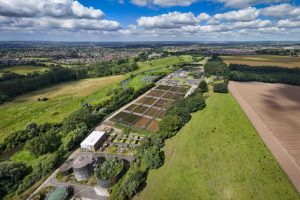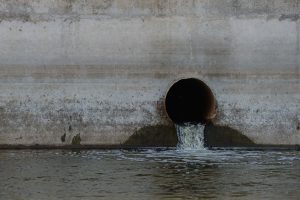The UK’s first plant to produce a bio-based raw material from sewage sludge is set to be installed by Royal HaskoningDHV at Blackburn Wastewater Treatment Works in Lancashire.
The bio-based raw material is known as Kaumera and the new extraction facility is being delivered by a consortium as part of the Ofwat funded ‘Biopolymers in the Circular Economy (BICE) project, which commenced earlier this year and is due to run until 2027.
According to Royal HaskoningDHV, which is providing a Kaumera extraction facility demonstration plant for the project, the initiative could “radically change the economics of wastewater treatment and enable water companies to generate revenue streams from the extraction of natural bio-chemicals”.
Kaumera draws the biopolymers from the sludge granules that form during Royal HaskoningDHV’s trademarked Nereda purification process - a biological wastewater treatment technology that uses the power of aerobic granular sludge, with no seeding or substrate required.
The world’s first raw material plant for Kaumera was opened in Zutphen in the Netherlands in October 2019. The plant in Zutphen (pictured) consists of a Nereda wastewater treatment plant and a Kaumera extraction plant.
United Utilities’ Blackburn Wastewater Treatment Works already uses Royal HaskoningDHV’s aerobic granular sludge technology developed in partnership with Delft University of Technology (TU Delft), which uses 50% less electricity than conventional aerobic treatment processes to purify wastewater. By adding the Kaumera extraction technology, the remaining sludge, as well as sludges from other plants, can be harvested for biopolymers to produce a Kaumera gel base product.
The project will see the base product assessed for direct water company uses – including flocculants for wastewater treatment. It will also be assessed for further processing to develop future market opportunities with the potential to be commericalised.
Among Kaumera’s benefits is that it can retain water but also repel it, making it suitable for a number of industrial, agricultural, and water-related applications.
Its water-retaining properties could see it used as a bio-stimulant in hot climates where water needs to be released slowly. Conversely, its water-repellent properties make it a suitable coating for concrete floors. It could also be used as a composite building material and has flame-retardant properties which could be added to products such as paint.
Additionally, Kaumera can be used as a curing agent for concrete and can be combined with other raw materials into bio-nanocomposite materials.
The Kaumera plant at Blackburn is part of a circular economy-inspired project funded by Ofwat’s Innovation Fund. Led by United Utilities and in addition to Royal HaskoningDHV, the project’s other partners include Severn Trent Water, South West Water, CirTec Cellvation, AquaMinerals, Yara, Glasgow Caledonian University and Cranfield University.
“The project will draw on the experience of academia, product developers, and potential customers to explore commercial applications, supply chains, economies of scale, and regulatory issues concerning recovered materials,” Royal HaskoningDHV said. “If successful, it could change the wastewater treatment industry forever, making it an income-generating.”
A spokesperson for Royal HaskoningDHV told NCE that as well as providing the Kaumera extraction facility demonstration plant, it “will be providing technical oversight to ensure the work packages on product development build upon the work done to date in order to accelerate the development of commercial opportunities for the use of the biopolymers”.
Royal HaskoningDHV would also assess the product yields and quality and to produce product a scale for evaluation by the consortium members. The company has been carrying out extensive research on Kaumera biopolymers, including developing commercial off-take contracts, over the past decade in the Netherlands.
Royal HaskoningDHV UK water utilities director Paul Lavender said: “Biogas is already extracted from sewage sludge but adding the recovery of useful biopolymers moves the industry higher up the value chain – it’s potentially game-changing.
“The global liquid polymer market is worth $1.27 trillion [£948bn] annually and is highly fossil fuel dependent, yet the nation’s water treatment plants offer us a natural source of biopolymers. This new pilot project won’t just demonstrate the extraction technology but will develop use cases by involving the whole supply chain including academia, commercial product developers, and blue-chip end-users.”
United Utilities chief engineer innovation Lisa Mansell said: “The water industry strives to minimise its environmental impact and increase efficiency. This project will explore the recovery of biopolymers such as those from cellulose in toilet paper to naturally derived biopolymers and will be a great example of a circular economy.
“It will also test the viability of generating new revenue streams which could help us drive down our operating costs and ultimately benefit customers. We are very excited about exploring the possibilities of circular wastewater treatment technologies and applications for a more sustainable future.”
Like what you've read? To receive New Civil Engineer's daily and weekly newsletters click here.
 New Civil Engineer Civil engineering and construction news and jobs from New Civil Engineer
New Civil Engineer Civil engineering and construction news and jobs from New Civil Engineer




Have your say
or a new account to join the discussion.